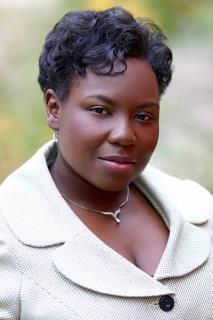
Last week in the Legal Corner we began covering the topic of various forms of property ownership. We concluded our discussion by listing the different types of estates and detailing the interest an individual may have in his or her property. Our focus this week is on freehold estates and nonfreehold estates.
Freehold estates are interest in property of indeterminable length which usually means forever, or at least for the life of the property owner. Freehold estates include property the owner holds in fee simple and as a life estate. Fee simple estates will continue for an indefinite period and are normally inherited by the heirs of the property owner. Life estates will terminate upon the death of an identified individual whose interest is linked to an interest in the property.
Specifically, a fee simple estate entitles the estate or property owner to all rights in the property which means complete ownership. A fee simple estate is the highest form of interest in real property recognized by law. This type of estate is for an unlimited amount of time. Therefore, when the owner dies without a will the estate or interest will pass to his or her heirs. A fee simple estate is considered an estate of inheritance, and can be legally transferred or sold to another person at any time.
A life estate is an interest in land that is limited in time and ownership. Generally a life estate is only for the life of the property owner or the life of another designated person. A normal life estate is for the lifetime of the property owner or “life tenant.” The life estate will terminate upon the death of the person to whom the life estate was granted. Life estates are not considered estates of inheritance, so the property owner is limited in his or her ability to transfer the property to another person. For example, there is a life estate known as an estate for the life of another, this interest allows the property to be inherited by the life tenant’s heirs. However, the heir’s interest would terminate upon the death of the person who initially held the property in life estate. Once the life estate is terminated, the property will generally return back to the grantor, the person who granted the life estate, unless another person has been named to receive the property.
Nonfreehold or leasehold estates are just the opposite of freehold estates. These estates are not inheritable and do not include title of the property or all rights to the property. Generally, leasehold or nonfreehold estates involve a lease agreement between a lessor and lessee. The most common types of nonfreehold estates are estate for years, estate from year to year, tenancy at will, and tenancy at sufferance. Estate for years is a leasehold estate that is designated for a certain amount of time. An estate for years always has a specific amount of time, with a beginning date and an ending date. This type of estate can be for years, months, weeks, or even days. Once the time expires the lessee or the person using the property must vacate and the lessor or the owner will take possession.
An estate from period to period or periodic tenancy is an agreement between a landlord and a tenant for the tenant to occupy the property for a specific period, such as a residential lease. However, unlike the estate for years, the period can be automatically renewed for an indefinite time without including an ending date. A tenancy at will or an estate at will occurs when a landlord has given a tenant permission to possess property for an unspecified amount of time. This type of estate interest is able to be terminated at any time by either party without prior notice. Lastly, an estate at sufferance or a tenancy at sufferance occurs when tenant legally obtains property through an agreement, but does not vacate the property after the agreement has expired. Thus, under an estate at sufferance the tenant is in possession of the property without the owner’s or landlord’s permission, so the tenant may be removed at any time.
This article does not include all of the detailed requirements and rules related to freehold and nonfreehold estates. If you have any additional questions about your real property, your interest in the real property, or how it should be transferred to another person, please consult an attorney.
Bellonora McCallum is an attorney at the McCallum Law Firm, PLLC, in Rockingham and Laurinburg. Reach her at 910-730-4064 or visit www.mccallumlawfirm.com

